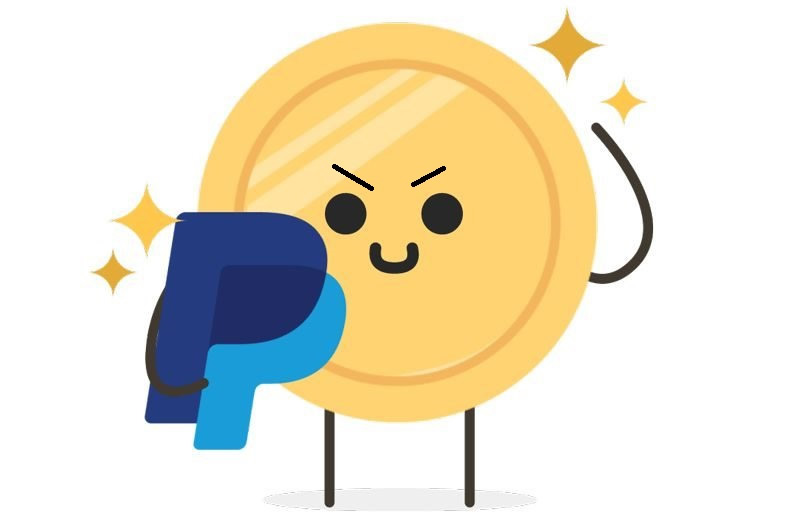Sweet Deal or Sweet Scam? How Honey is Allegedly Hurting Content Creators’ Commissions
By: Anneliese McInnis
About 17 million consumers have downloaded Honey, PayPal’s free browser extension that finds the “best” deals and coupons to help you save money.[1] However, under Honey’s sweet facade lies an alleged commission-poaching scheme that has harmed content creators, influencers, and bloggers who earn revenue from online-shoppers using their affiliate links.[2]
Many content creators earn commission through product promotion and rely on affiliate marketing to generate revenue.[3] Affiliates earn commission by generating sales from consumers who use the affiliate’s assigned link.[4] Affiliates get credit for referring customers through tracking technology, which most people know as cookies.[5] “When a consumer clicks on an affiliate link, a cookie is placed in their browser. If that consumer makes a purchase, the affiliate responsible for the last-clicked link earns a commission.”[6] This model is called “last-click attribution.”[7]
However, PayPal is under fire for allegedly stealing this commission from content creators.[8] If a shopper has the Honey browser extension installed, it scans through the internet to find coupon codes.[9] Once the “best” coupon code is identified, Honey prompts the shopper to use the code and apply the discount to the purchase.[10] The problem is the browser extension pops up on the shoppers screen immediately before the transaction is finalized— and whether a discount is available or not.[11] When the shopper clicks on the pop-up, the affiliate’s cookie is replaced with PayPal’s cookie, making PayPal the last-clicked link.[12] As a result, PayPal pockets the commission without leaving a dime for the content creator who actually generated the sale.[13]
Creators who rely on this technology to make money are now fighting back. In late January, a class action was filed against PayPal, the owner of Honey, alleging that the company is poaching commissions from content creators by intercepting transactions and pocketing money that rightfully belongs to those who generated the sale.[14] The plaintiff and class members alleged multiple violations including unjust enrichment and intentional interference with contractual or business relations.[15] However, from a legal perspective, the issue is murky. Honey operates as a consumer advocacy service that helps shoppers save time and money by finding and applying coupon codes.[16] On the other hand, it agitates the affiliate marketing system by intercepting commissions, which is certainly a violation of affiliate program policies.[17]
The plaintiff and class member’s argue that Honey is unjustly enriching itself by interfering in the contract and financial deals made between the content creator and the online marketplace.[18] They also argue that Honey is intentionally interfering with contractual relations, a cause of action under tort law.[19] Under both legal theories, the plaintiff has the burden of proof and will have to show, among other facts, the existence of a contract, the defendant’s knowledge of the contract, intent to disrupt performance of the contract, and that the plaintiff was actually harmed.[20] The plaintiff is seeking class certification to bring in thousands of other content creators who have been harmed by Honey’s actions, and is requesting injunctive and declaratory relief, along with damages.[21]
Content creators often enter into contractual agreements with online marketplaces with the goal of promoting their products and earning commission in return. However, when contracting with merchants, creators cannot ensure that their commission will come back to them, and typical merchants do not have strict cookie policies that defend against injected cookies.[22] To ensure that content creators are not swindled out of their contracted commissions, affiliate marketing programs need to prioritize regulation and enforcement.[23] The results of this case will have consequences not only for content creators who rely on commission-based revenue, but also for affiliate marketing programs and other browser extensions that operate similar to Honey.
Image link: https://forum.overclock3d.net/threads/youtuber-exposes-the-honey-browser-extension-as-a-scam.103027/
[1] Compl. ¶ 1, Latina Tradwife v. PayPal Holdings, Case 5:25-cv-00850, (N.D. Cal. Jan. 24, 2025).
[2] See Affiverse Media, Behind the Buzz: The Affiliate Scam Allegations Against Honey (Jan. 15, 2025), https://www.affiversemedia.com/behind-the-buzz-the-affiliate-scam-allegations-against-honey/ [hereinafter Behind the Buzz].
[3] See Compl. Latina Tradwife v. PayPal Holdings, supra note 1 at ¶ 2.
[4] Behind the Buzz, supra note 2.
[5] Id.
[6] Id.
[7] Id.
[8] See Id.
[9] Behind the Buzz, supra note 2.
[10] Id.
[11] Compl. Latina Tradwife v. PayPal Holdings, supra note 1 at ¶ 3.
[12] Id.
[13] Id.
[14] Id.
[15] Id.
[16] Behind the Buzz, supra note 2.
[17] Id.
[18] Ethan Baron, Tech giant PayPal accused of fraud over Honey online-shopping coupon finder, Tech Xplore (Jan. 7, 2025), https://techxplore.com/news/2025-01-tech-giant-paypal-accused-fraud.html
[19] Pacific Gas & Electric Co. v. Bear Stearns & Co. 791 P.2d 587, (Cal. 1990).
[20] Id. at 589–90
[21] Compl. Latina Tradwife v. PayPal Holdings, supra note 1 at ¶ 67(c)–(d).
[22] Behind the Buzz, supra note 2.
[23] See id.
